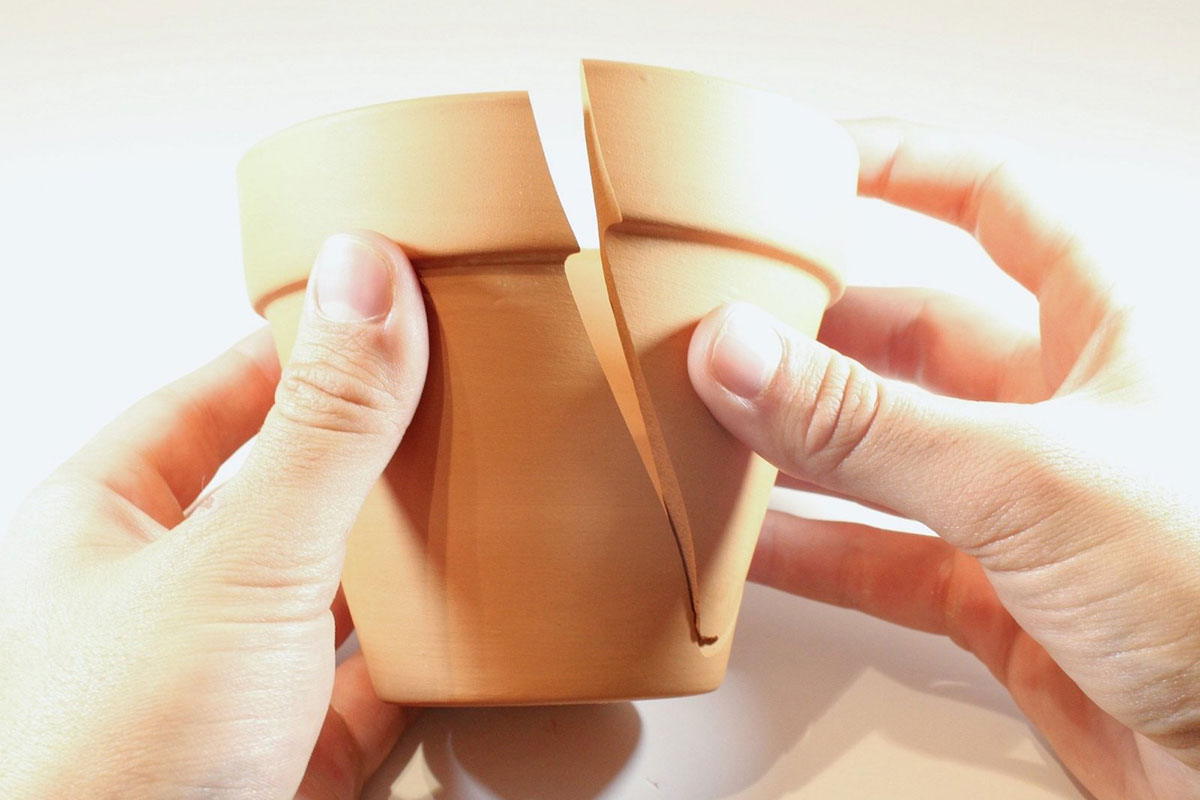Trust is the cornerstone of any relationship, serving as the foundation upon which all else is built. It is the glue that binds people together, and a vital ingredient in all types of relationships – whether romantic, familial, platonic, or professional. This article delves into the significance of trust in relationships, providing an in-depth analysis of its role, the impact of its absence, and the ways to build, maintain, and rebuild it.
Table of Contents
- Understanding Trust
- The Role of Trust in Different Types of Relationships
- A Deeper Look Into the Importance of Trust
- Building Trust: A Detailed Guide
- Maintaining Trust: An In-Depth Analysis
- Rebuilding Trust: A Comprehensive Approach
- Statistics on Trust in Relationships
- Trust in Relationships: A Concluding Note
Understanding Trust
Trust, a simple five-letter word, holds profound meaning when it comes to relationships. But what is trust? At its core, trust is confidence in the reliability and honesty of another person. It’s a firm belief that someone will behave with integrity, fulfill their promises, and not cause harm intentionally. While this definition may seem straightforward, the role of trust in relationships takes on more nuanced implications.
In the context of human relationships, trust signifies emotional safety and assurance. It involves believing that your partner comprehends your feelings, values your boundaries, and will make decisions and take actions that contribute to mutual growth. Trust is also inextricably tied to vulnerability. The ability to let down your defenses, to reveal your true, authentic self, is possible only in an environment of trust.
Without trust, relationships often struggle with insecurities, miscommunication, and instability. Consider a romantic couple, Lisa and Alex. Lisa trusts Alex enough to share her deepest fears and wildest dreams, knowing that Alex will neither dismiss her feelings nor use them against her in the future. This trust allows Lisa to be her authentic self with Alex, thereby fortifying their emotional connection. Moreover, it illustrates how trust provides a safe space for individuals to express themselves freely without fear of judgement or backlash.
The Role of Trust in Different Types of Relationships
Trust plays an integral role in various kinds of relationships. While its importance remains constant, the expression and impact of trust can differ significantly depending on the type of relationship.

Romantic Relationships
In a romantic relationship, trust forms the bedrock upon which partners can build a shared future. It facilitates open communication, allowing individuals to express their feelings, desires, concerns, and expectations openly and honestly. Trust creates a safe haven where vulnerability is cherished rather than ridiculed, thereby fostering deep emotional connections.
When trust is present, partners can resolve conflicts effectively, secure in the knowledge that each person’s views and feelings are valued and respected. Conversely, the absence of trust, often resulting from infidelity, lies, or broken promises, can lead to emotional turmoil, dissatisfaction, and the eventual breakdown of the relationship.
Platonic Relationships
Friendships, much like romantic relationships, also require a strong foundation of trust. Friends need to have faith in each other, assured that their secrets, fears, and aspirations will be guarded with unwavering loyalty. A trustworthy friend is a confidant, a shoulder to lean on, and a beacon of hope and support during challenging times. On the other hand, a breach of trust in friendships can lead to heartache, bitterness, and often, the end of the friendship itself.
Family Relationships
Trust is the cornerstone of a healthy family dynamic. Parents and children, siblings, and extended family members – all these relationships need trust to thrive. In a family context, trust fosters a sense of security, belonging, and mutual respect. Children who trust their parents tend to feel safe and secure, while trust among siblings can cultivate a bond that endures time, distance, and conflicts.
Professional Relationships
Trust is equally crucial in a professional setting. Employees who trust their leaders are likely to be more engaged, committed, and satisfied in their jobs. Trust among team members paves the way for open communication, constructive feedback, and efficient problem-solving. In contrast, a lack of trust in professional relationships can lead to low morale, decreased productivity, and high employee turnover.
A Deeper Look Into the Importance of Trust
Trust isn’t merely a desirable quality in a relationship; it’s an absolute necessity. The impact of trust extends far beyond basic interactions; it permeates every aspect of a relationship and significantly influences its trajectory.
At its essence, trust allows individuals to navigate their relationships with a sense of security and freedom. Trusting someone means believing in their reliability, counting on them in times of need, and being confident that they have your best interests at heart. It provides the certainty that they won’t intentionally hurt or deceive you. The importance of trust in a relationship, therefore, cannot be overstated.
Trust also enables open communication, a vital aspect of healthy relationships. When trust exists, individuals feel comfortable sharing their thoughts, feelings, and experiences, secure in the knowledge that they will be heard, respected, and valued. Conversely, a lack of trust can lead to guarded communication, misunderstandings, and unmet needs, all of which can erode the relationship’s foundation.
Moreover, trust fosters resilience in relationships. Life is full of ups and downs, and relationships are no exception. Trust helps partners endure difficult times, providing the assurance that they can rely on each other for support and understanding. It gives them the confidence to face challenges together, knowing that their bond can withstand the pressures and adversities that come their way.
Building Trust: A Detailed Guide
Building trust isn’t an overnight process. It takes time, effort, and a genuine desire to create a trustworthy relationship. Here are some steps to help you build trust in your relationships:

1. Honesty
Honesty is the first step towards building trust. Being open and truthful about your thoughts, feelings, and experiences helps to foster trust. It demonstrates your authenticity and willingness to be vulnerable, encouraging others to do the same.
2. Reliability
Being reliable is another essential aspect of building trust. This involves following through on your commitments, doing what you say you will, and being dependable. When people know they can count on you, they’re more likely to trust you.
3. Empathy
Empathy plays a significant role in building trust. By demonstrating understanding and compassion towards others’ experiences and emotions, you show that you value their feelings and perspectives, which can enhance trust.
4. Consistency
Consistency is key in building trust. When your actions align with your words consistently, people are more likely to trust you. This includes being consistent in your behavior, values, and treatment of others.
Maintaining Trust: An In-Depth Analysis
Building trust is only half the battle; maintaining it is just as important, if not more so. Maintaining trust involves continually nurturing and strengthening the trust you’ve built. Here’s how you can maintain trust in your relationships:
1. Keep Your Promises
Keeping your promises is crucial in maintaining trust. When you make a promise, follow through on it. If circumstances prevent you from keeping your promise, communicate this to the other person and apologize. Broken promises can quickly erode trust.
2. Be Open and Honest
Maintain openness and honesty in your communication. Being transparent about your feelings, thoughts, and experiences demonstrates your authenticity and commitment to the relationship.
3. Show Respect
Show respect to the other person and their feelings. Respect their boundaries, listen to their views, and validate their emotions. Disrespect can damage trust, while respect can foster it.
4. Remain Consistent
Continue to be consistent in your words and actions. Consistency over time is key to maintaining trust.
Rebuilding Trust: A Comprehensive Approach
There may be times when trust is broken in a relationship. This can be incredibly hurtful and damaging, but it doesn’t necessarily mean the end of the relationship. With time, patience, and commitment, trust can be rebuilt. Here’s a comprehensive approach to rebuilding trust:

1. Acknowledge the Breach of Trust
The first step in rebuilding trust is acknowledging that it has been broken. The person who broke the trust needs to take responsibility for their actions, express remorse, and apologize sincerely. The person whose trust was broken needs to express their feelings and articulate their needs moving forward.
2. Communicate Openly
Open communication is key to rebuilding trust. Both parties need to express their feelings and concerns honestly and listen to each other with empathy and respect.
3. Rebuild Trust Gradually
Rebuilding trust takes time. It starts with small steps and requires consistent, reliable behavior over time. The person who broke the trust needs to demonstrate their commitment to change and the person whose trust was broken needs to be open to healing and forgiveness.
4. Seek Professional Help
In some cases, professional help might be necessary to rebuild trust. Therapists and counselors can provide guidance, tools, and strategies to help navigate the process of rebuilding trust.
Statistics on Trust in Relationships
Various studies highlight the critical role of trust in relationships. According to a study by the Pew Research Center, 88% of Americans believe trust is crucial to a successful romantic relationship. Another survey found that 65% of employees who trust their organization’s leadership are engaged in their work, compared to just 48% who don’t trust their leaders. These statistics underscore the profound impact trust can have on the quality and success of different types of relationships.
Trust in Relationships: A Concluding Note
Trust is the cornerstone of any relationship, whether romantic, platonic, familial, or professional. It is the glue that holds relationships together and the foundation upon which they are built. The role of trust in relationships extends beyond basic interactions; it affects communication, emotional connection, conflict resolution, and the overall health and longevity of the relationship.
Building, maintaining, and rebuilding trust requires time, effort, consistency, honesty, and empathy. Although it can be challenging, the rewards of a trusting relationship are well worth the effort. Trust in relationships not only fosters a sense of safety and security, but it also enables individuals to express themselves freely, to be their authentic selves, and to navigate their relationships with confidence and assurance.
With a better understanding of the role of trust in relationships, we can strive to foster trust in our own relationships, contributing to their health, satisfaction, and longevity.








Leave a Comment